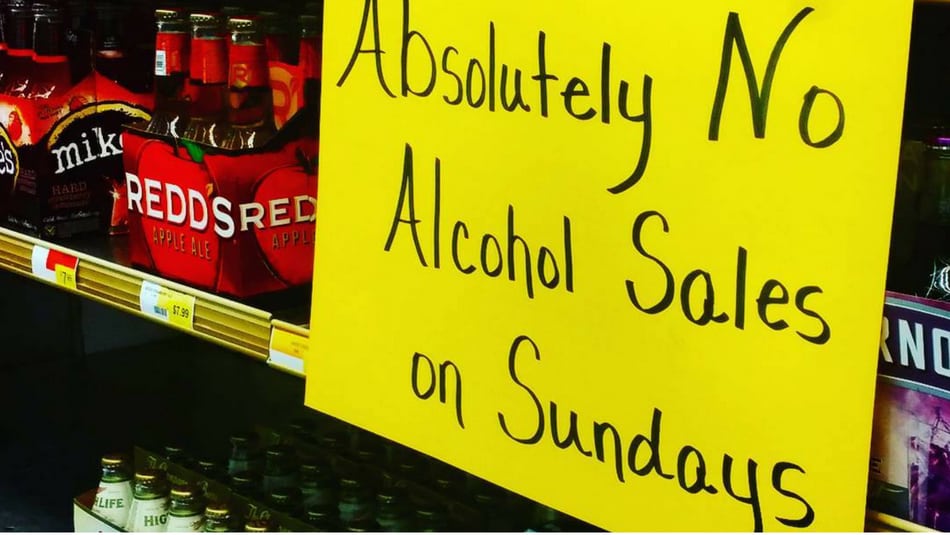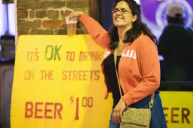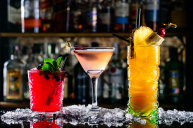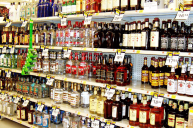In some locations throughout the United States, especially in the South, it's a time-honored tradition to make a beer run to the next county over. Rarely does one travel the distance simply because of better liquor; instead, it's because "blue laws" have created a patchwork map of places where: alcohol sales are allowed, alcohol can be sold (except on Sunday), and no alcohol at all is allowed to be sold. These increasingly outdated and frustrating laws are beginning to change, in practice if not on paper, and no place is that more evident than Conway, Arkansas.
Conway is a college town; there are three schools of higher education here. But unlike most college towns, because Conway is located in Faulkner County, there's not a single liquor store. The time-honored tradition here is to head to Morgan, a town just across the Pulaski county line and right off Interstate 40, for all one's adult beverage needs.
Why? Because Faulkner Country is dry, meaning no alcohol sales are allowed. There are no bars or liquor stores and beer and wine cannot be sold in grocery stores.
Blue Laws
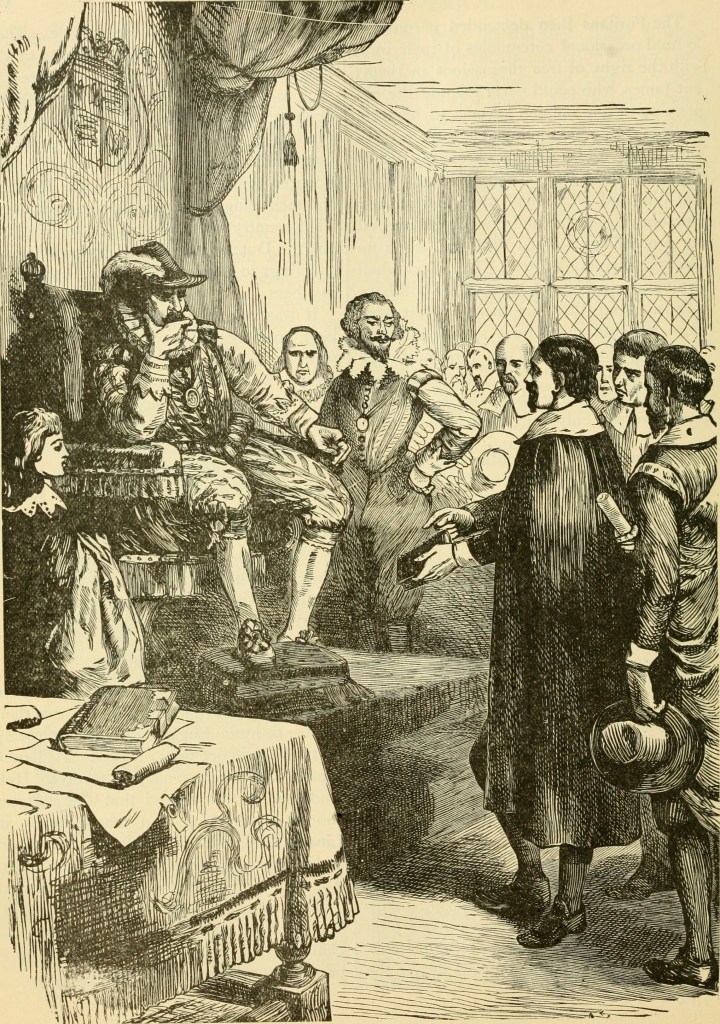
Wikimedia
Supposedly, so-called blue laws go back to 17th century Connecticut where the Puritans enacted rules to govern behavior, though the first recorded mention of the phrase was in Reverend Samuel Peters' 1781 book, General History of Connecticut.
It wasn't until the American temperance movement in the 1800s that interest groups were able to successfully influence national and state laws regulating alcohol. These laws, also known as Sunday laws or Sunday-closing laws, covered more than alcohol, too. They regulated retail shopping and entertainment activities on Sunday, closing stores and other recreational locations so that residents would be forced to honor the Lord's day. There were rules against horse racing, dancing, baseball, and card games taking place on the Sabbath.
Arkansas had barely been a state for a year when the state legislature passed the first blue laws in 1837. They stood in one form or another for almost 150 years. Technically, blue laws ceased to exist statewide in 1982, when the last of them were repealed. However, counties and localities in Arkansas can make their own laws regulating alcohol. 40 of the 75 counties in the state are wet, though technically only 27 of those allow alcohol sales everywhere in the county. The other counties are known as "damp" and have exceptions where political subdivisions like towns, townships, wards, or precincts have voted to outlaw alcohol sales.
Sunday sales of alcohol (including beer and wine) in retail stores are not allowed, except in seven of those wet counties. Plus, restaurants are allowed to serve alcohol on Sundays and some breweries are allowed to sell growlers. Nobody sells alcohol on Christmas Day.
Basically, Arkansas liquor laws are all over the map, both literally and figuratively.
Yes, There's Drinking in Faulkner County
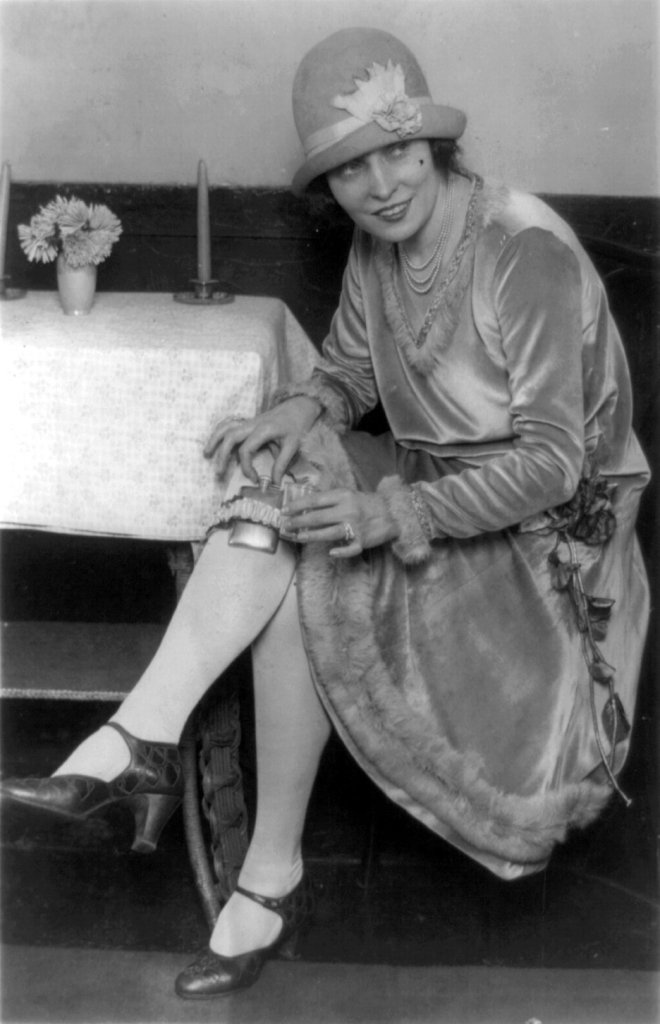
Wikimedia
However, the blue laws on Faulkner County's books don't mean there's no alcohol in Faulkner County.
There are regulations that allow for "private clubs" where beer, wine, and liquor can be sold even in dry counties. The Arkansas Alcoholic Beverage Control Division grants licenses to these clubs, usually restaurants, after the businesses permit has been approved by the city council.
In 2004 and 2005, some things in Conway started to change. A restaurant in downtown Conway applied for a private club (sometimes called "supper clubs") permit to sell alcohol and opened in June 2005. Over the next few years, more local restaurants applied for the permit, which allows them to sell mixed drinks and beer and wine by the glass. Eventually, larger chain restaurants like Chili's and TGI Fridays, which had previously avoided the city, began to open locations in Conway. Red Robin is the latest national chain to gain a private club license in the city, showing that the permitting process is bringing new business to the county and that interest in gaining a permit to sell alcohol is not slowing down.
These clubs are technically members only, though membership is easy to gain. In the beginning, you had to pay a membership fee once and then sign in at a notebook kept at the host stand every time you ate at one of the "private club" restaurants. Now, the membership requirement is more of a technicality. A lifetime membership is free and it's no longer necessary to sign in at the host stand.
Welcome to the Bible Belt
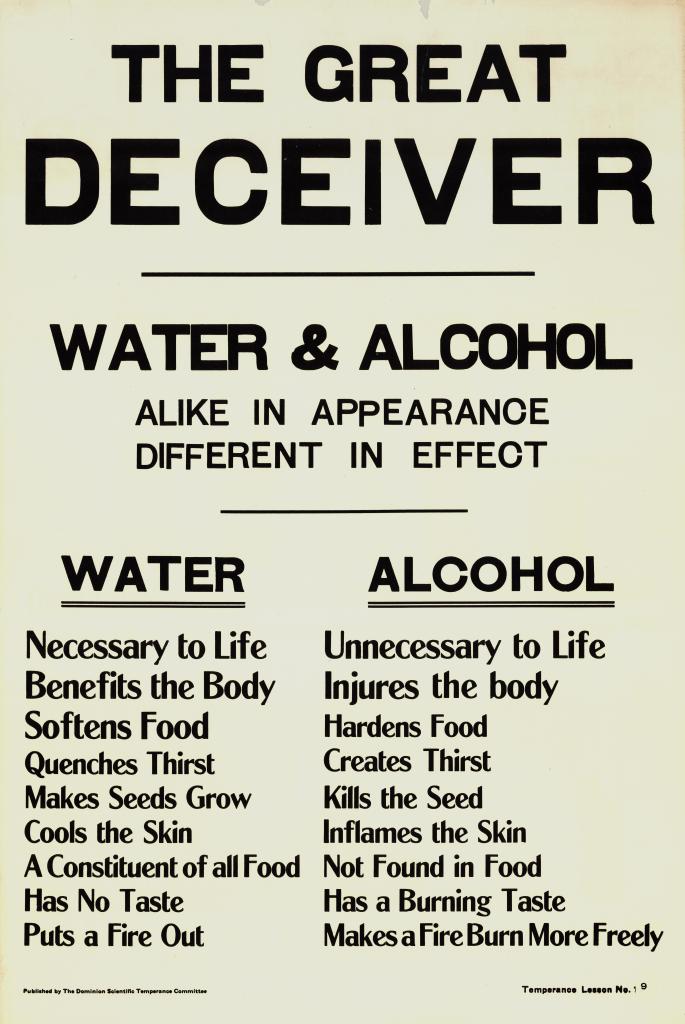
Wikimedia
In 2016, there was a statewide referendum on alcohol laws that proposed to make the entire state open to alcohol sales. It failed.
There were other efforts to change county laws, including in Faulkner County, but only one of those succeeded. In fact, in 2000 there were 32 wet or damp counties, but that number grew by only eight over the next 18 years.
There is still a strong feeling against the sale of alcohol in many places across the state because people feel that bringing in liquor stores and bars will bring in crime and delinquency. Many Christian churches actively work against efforts to open up alcohol laws in Arkansas, and so far they've succeeded.
But some feel like it's only a matter of time before the entire state changes enough to allow liquor sales. Clark Trim, president of Colonial Wine and Spirits in Little Rock, said that "more and more counties are voting to go wet." He also noted that he was surprised the 2016 statewide ballot initiative didn't pass but said that, "eventually he thinks it will happen."
The Changing Face—and Laws—of Alcohol in Arkansas
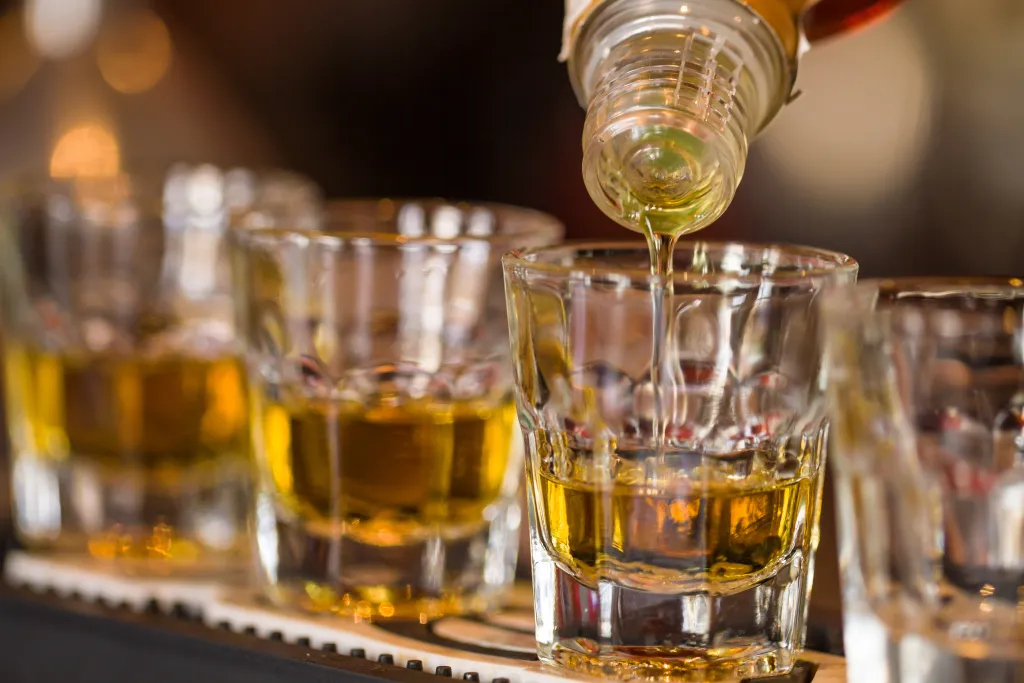
You'd think that a county with almost 15,000 college students would have no trouble passing a law legalizing the sale of alcohol, especially with the strong support of the local business community. But in so many election cycles, the effort couldn't manage to get enough signatures to even get on the ballot.
But the de facto sale of alcohol in Faulkner County via permitted private clubs has normalized the presence of alcohol in local businesses. It really is a matter of time before residents demand the freedom to buy beer and wine and liquor without having to drive half an hour over into the next county.
And it's not just the ability to buy alcohol anywhere in the state that is changing. Trim noted that every time a county voted to go wet, the whole dynamic of alcohol sales in the state changes because distributors have to accommodate the growth and customers have the option to shop at new businesses which may hurt existing businesses.
To some extent, though, the more alcohol is widely available, the more demand grows. People have a drink at a private club/restaurant and want to make the same thing at home, so they seek out a liquor store to buy the right gin or bourbon or rum. One Conway restaurant owner suggested that the county line liquor stores benefited from private club sales in Faulkner County because residents would shop there in order to buy a bottle of whatever it was they had at the Conway restaurant.
Arkansas craft breweries are springing up across the state, some in the most unlikely of places. There's even a couple of distilleries; the award-winning Rock Town Distillery is the first legal distillery in Arkansas since Prohibition.
Trim said that getting consumers to try new products is good for the industry in general; in other words, a rising tide of liquor helps all boats.
What happens next?
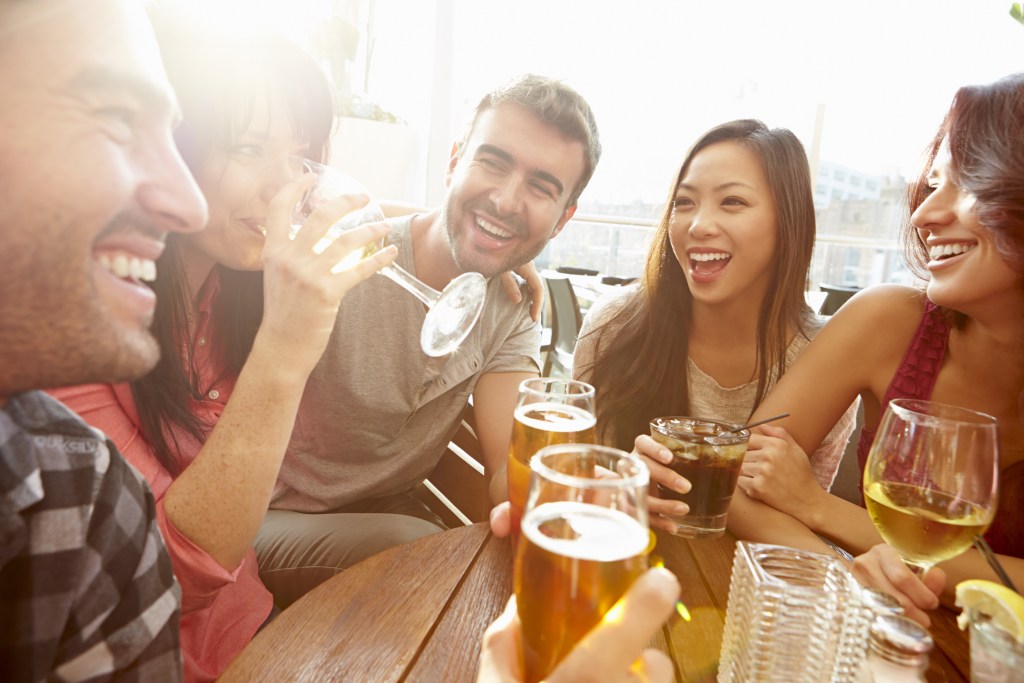
There are several issues that will likely go before the Arkansas State Legislature in the next session, including delivery and shipping. Right now, no retailers are allowed to deliver alcohol to customers and shipping alcohol into and out of the state is outlawed.
Illegal shipping into the state happens frequently, according to Trim, and while local retailers would like for Arkansans to buy locally, mostly they would like a level playing field with shipping to other states allowed. The ability to deliver would be a game changer, too.
There is also the question of where a customer, be it an individual or a business like a restaurant, can buy their alcohol. Grocery stores and large retailers pushed to be able to sell wine in addition to beer; no doubt they would also like to be able to sell hard liquor, something that would hurt locally-owned liquor stores.
What it all comes down to is this: Blue laws still exist, in practice and mostly on a local level, but those laws are changing as the population changes. As more people, especially in the younger demographic, engage in alcohol as an experience (brewery visits, wine trails, distillery tours), more attitudes and thus more laws are likely to keep changing.
